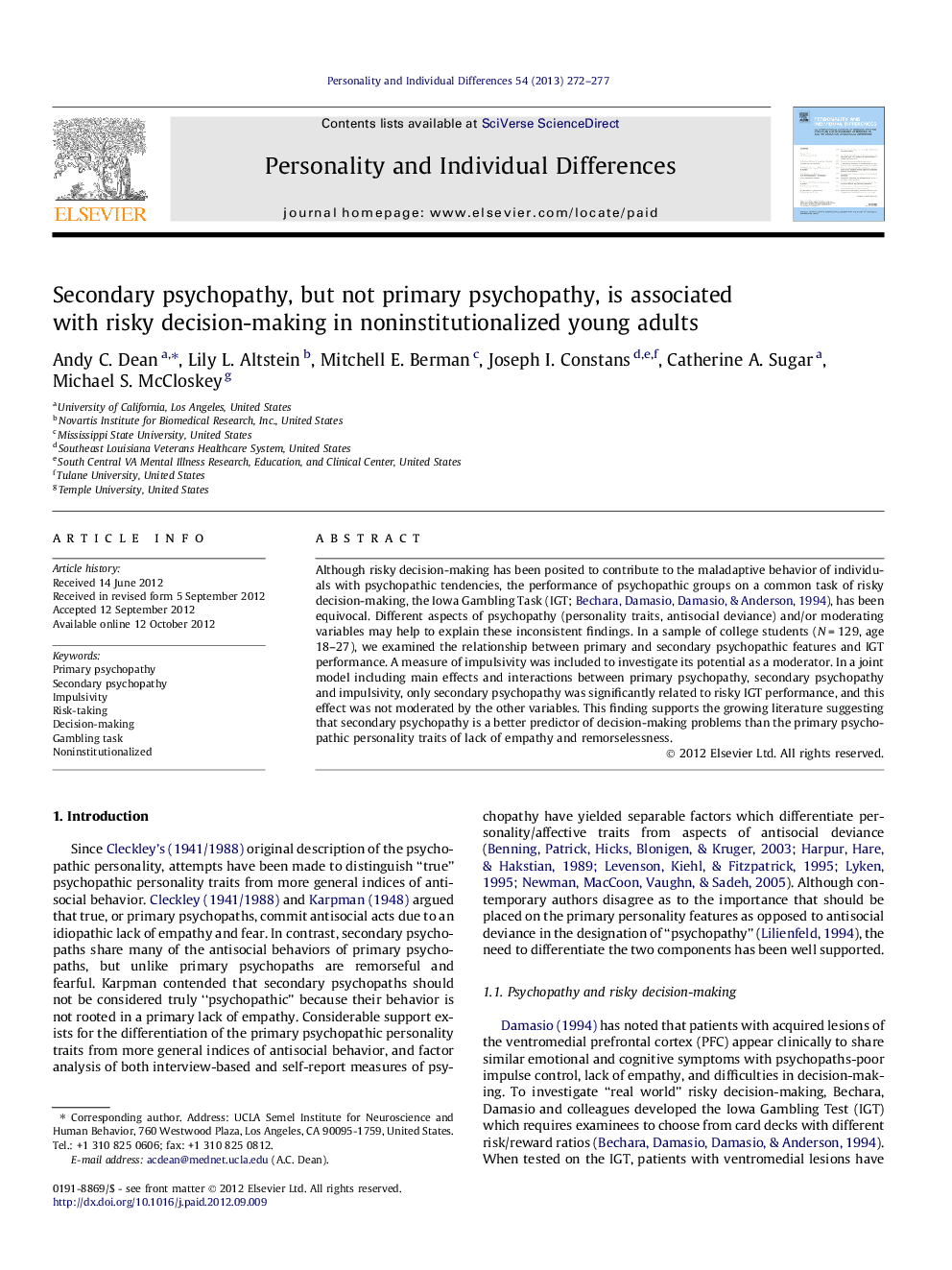| Article ID | Journal | Published Year | Pages | File Type |
|---|---|---|---|---|
| 891358 | Personality and Individual Differences | 2013 | 6 Pages |
Although risky decision-making has been posited to contribute to the maladaptive behavior of individuals with psychopathic tendencies, the performance of psychopathic groups on a common task of risky decision-making, the Iowa Gambling Task (IGT; Bechara, Damasio, Damasio, & Anderson, 1994), has been equivocal. Different aspects of psychopathy (personality traits, antisocial deviance) and/or moderating variables may help to explain these inconsistent findings. In a sample of college students (N = 129, age 18–27), we examined the relationship between primary and secondary psychopathic features and IGT performance. A measure of impulsivity was included to investigate its potential as a moderator. In a joint model including main effects and interactions between primary psychopathy, secondary psychopathy and impulsivity, only secondary psychopathy was significantly related to risky IGT performance, and this effect was not moderated by the other variables. This finding supports the growing literature suggesting that secondary psychopathy is a better predictor of decision-making problems than the primary psychopathic personality traits of lack of empathy and remorselessness.
► Secondary psychopathy, not primary psychopathy, is related to risky decision-making. ► Impulsivity does not moderate the psychopathy/decision-making relationship. ► Findings add to the divergent correlates of primary and secondary psychopathy.
